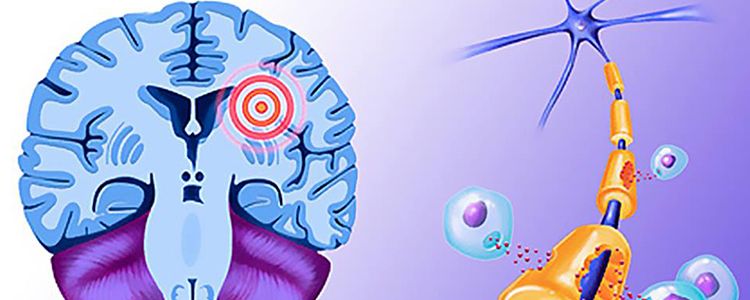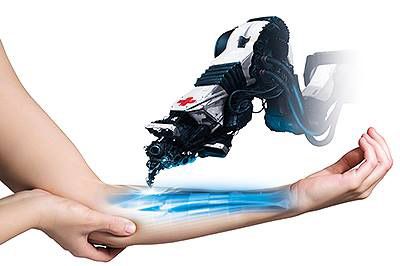Canadian researchers have reported successful clinical trials of the treatment of multiple sclerosis with hematopoietic stem cells. The report on the work was published in the journal The Lancet.
Multiple sclerosis is a chronic autoimmune disease that causes damage to the myelin membrane of nerve fibers in different parts of the central nervous system that leads to the disruption of nerve transmission and loss of relevant features (sensory, motor, and so on).
In non-randomized open trial, conducted by the University of Ottawa, Canada, under the direction of Harold Atkins with colleagues from other scientific and clinical centers, 24 patients aged 18 to 50 years with steady to treatment of aggressive course of multiple sclerosis and poor prognosis participated. During the time from diagnosis to transplantation in total there were 167 exacerbations of the disease over 140 patients and 188 specific brain tissue lesions were found on MRI.
During the experimental treatment, participants took cells of the predecessor hematopoiesis (CD34 +) and underwent immuno-ablation (destruction of immune cells) of busulfan, cyclophosphamide and antytymotsytarnym rabbit immunoglobulin. After this immunity was restored transplantation patients own cells took place. The purpose of this was to destroy a population of immune cells that attack myelin fibers and other structures of the nervous system of patients.
The observation of patients lasted an average of 6.7 years (from 3.9 to 12.7 years). Within three years of treatment (primary endpoint test) at 69.9 percent volunteer signs of multiple sclerosis activity was not observed (worsening, progression and brain damage visible on MRI with gadolinium contrast). During the time of observation in any of those participants who survived, there was no clinical exacerbations of the disease or need for specific therapy and the rate of brain atrophy diminished to the level of a healthy person.
In 35 percent of volunteers expression of disability (as enlarged scale organic disorders) associated with blurred vision, muscle weakness and impaired coordination steadily decreased. Several participants were able to return to work or study.
Despite the overall success of the experimental treatment there were severe complications. One of the patients died of infectious liver damage as a result of immuno-ablation, another patient with the same condition needed to be placed in the intensive care unit. Fever was observed in all participants in the treatment.
As the researchers write, the technique is the first type of treatment that has completely stopped inflammatory activity in the central nervous system in patients with multiple sclerosis for a long time and with no additional therapy. They also note that further testing is necessary to specify a group of patients undergoing such treatment that will bring maximum benefit at low risk of complications.
As a reminder, as part of the project “Bioengineering Rehabilitation for Wounded“ iLaya clinic doctors, using the latest biotechnology, restore the damaged limbs of wounded Ukrainian soldiers. The People’s Project reported the sensational recovery of the foot 19-year-old wounded volunteer.
Currently the collection of funds for the treatment of two wounded continues and five more are waiting in line to join the project. For them biotechnology represents the only chance of recovery. Please get involved and help Ukraine’s defenders.




















































